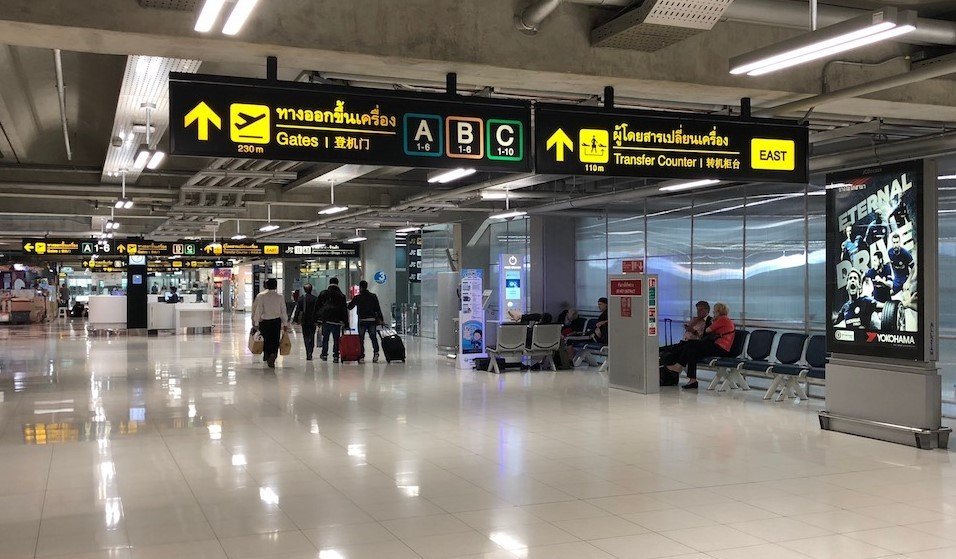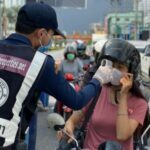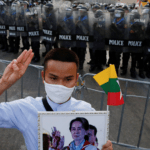Thailand has widened an entry ban to cover non-Thai travellers from Bangladesh, Pakistan and Nepal to guard against the spread of the highly contagious Covid-19 variant first detected in India.
The entry ban includes foreigners departing from these countries and in transit in other countries and those travelling in or passing through them.
Travellers arriving here from overseas need to first produce a certificate of entry (COE) as part of the kingdom’s Covid-19 measures.
The Thai embassy in New Delhi had already decided late last month to cancel all COEs issued to non-Thais from India due to the virus spike there.
The Ministry of Foreign Affairs decided on Monday to stop issuing COEs to non-Thai nationals travelling from the three other South Asian countries which are experiencing widespread transmissions of the variant.
Ministry spokesman Tanee Sangrat said the decision was made at the request of the Centre for Covid-19 Situation Administration (CCSA) following the discovery of the fast-spreading variant in travellers from Pakistan.
“The CCSA has confirmed reports that one traveller from Pakistan into Thailand has been infected by the Covid-19 variant first detected in India,” said Mr Tanee.
“The CCSA meeting therefore requested the MFA to temporarily suspend the issuance of COEs to all foreigners travelling from countries which have widespread transmission of the said variant.
“In response to this, the MFA will comply with the CCSA’s recommendations and temporarily suspend the issuance of COEs to all foreign nationals travelling from Pakistan, Bangladesh and Nepal into Thailand.”
Mr Tanee stressed that the suspension of COEs was a temporary and precautionary measure against the spread of the variant and did not affect Thai nationals travelling from those countries.
“Thai nationals, diplomats on mission in Thailand and their families and permanent residents travelling from these countries are still able to return to Thailand if they so wish,” he said.
Apisamai Srirangson, an assistant spokeswoman for the CCSA, reported the discovery of the new variant in a Thai woman and her young son who arrived from Pakistan last month.
The woman and her three sons, aged four, six and eight, arrived in Thailand from Pakistan via Dubai on April 24.
All were in a state-arranged state quarantine facility after their arrival and the first tests found the mother and her youngest son were positive, while the other children were not infected.
A whole-genome sequencing test conducted at Chulalongkorn Memorial Hospital on Sunday confirmed the virus detected on them was B.1.617.1.
“These were the first detections of the variant in the country,” Dr Apisamai said.
The B.1.617.1 variant was recorded for the first time in India in October before spreading to other countries including Pakistan, Bangladesh and Nepal. The UK, Germany, Singapore, Japan and Bahrain have also detected this version of the virus.
“The CCSA is concerned about the new version and the possibility of the virus mutating here and has asked all agencies to heighten their surveillance,” she said.
According to Dr Apisamai, Thailand has barred entry to non-Thai travellers from India and the latest flight on May 8 brought home 74 Thai citizens who are now in state quarantine (SQ) and alternative state quarantine (ASQ) venues.
The next scheduled flights for Thai nationals from India are on May 15 and May 22 — passengers will be closely monitored and tested for the variant while being quarantined, she added.
Thiravat Hemachudha, director of the Health Science Centre of Emerging Diseases at Chulalongkorn University’s faculty of medicine, on Monday urged the country to be on high alert.
Dr Thiravat said the new variant was even causing concern in Israel, noting that four people who had been fully vaccinated with the Pfizer vaccine were among those infected with it.
“Thailand must be vigilant even if we can achieve our vaccination target by year-end,” he wrote. “If there is a mutated version that can evade vaccines, the problem will remain.”
bkkpost




